We are currently in the midst of one of the greatest upheavals our world has recently witnessed. In just a few short weeks the Coronavirus went from something that was causing ructions in parts of China to a pandemic that has shut our schools, businesses and turned all our lives upside down. Many of us are now without work or a daily routine, the economy is collapsing all around us, and we don’t have any real idea of when we’ll ever get back to normal, or even what normal will be when this all ends. And this is all without many of us even getting sick. Cases of Coronavirus are still relatively low in Ireland although they will grow in the weeks and months ahead, causing major strains on our already overburdened health service and further disrupting our way of life. Many of us may contract the virus, but most of us will make a full recovery as well. However, we will all find ourselves spending much longer periods of time in isolation and removed from the company of our families, friends and work colleagues. These psychological strains could prove for many to be more difficult than the disease itself. How then can we cope with this new unprecedented way of being? Perhaps we can learn some lessons from pilgrimages.
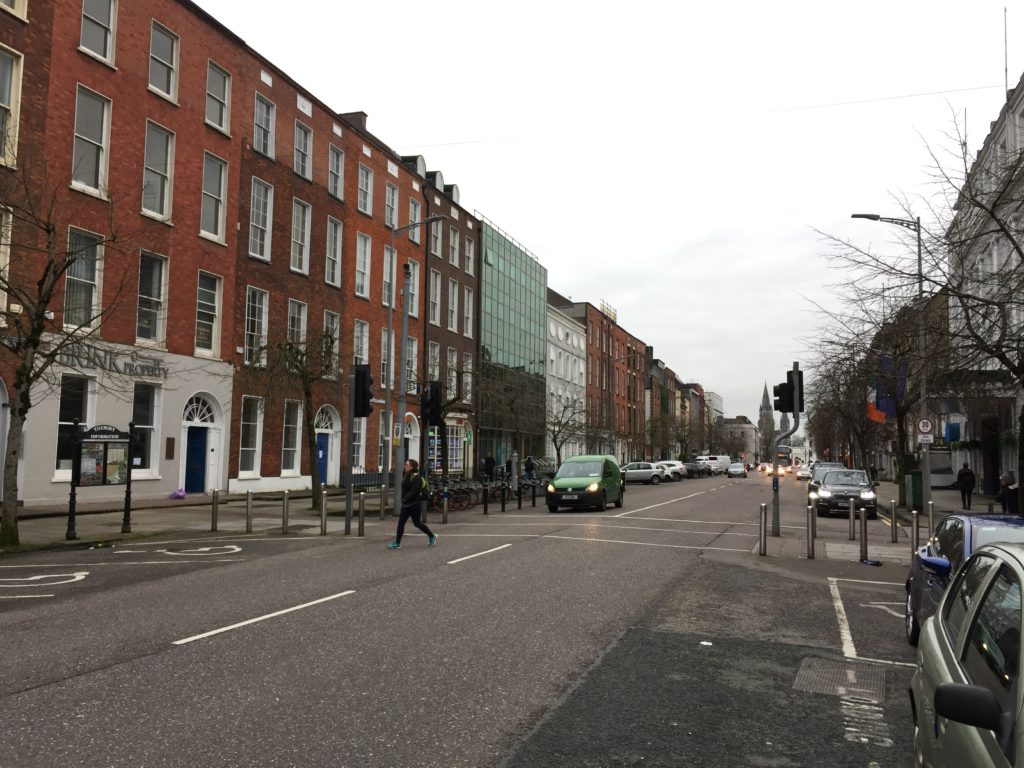
Defined as a journey to a sacred place, pilgrimages have been undertaken for religious reasons since time immemorial, and while organised religion has been on the decline in the West in recent decades the popularity of pilgrimages continues to grow. Witness the enormous surge in people walking to Santiago de Compostela in the last 20 or 30 years. By undertaking an arduous journey of the body the pilgrim sacrifices many of the comforts and security of everyday life but is ultimately rewarded by the more satisfying comforts of inner peace. As we are now being asked to place our regular lives on hold to help prevent the spread of Covid-19, we are all on a pilgrimage of sorts. The sacred place to which we are travelling is a return to the world of normality, a place where the ordinary everyday interactions of people are not a potential source of contamination. Unlike other pilgrimages this journey is not one of our choosing, and the way will be full of challenges, but there may also be some hidden rewards en route.
It is said that a pilgrim’s journey is guided by seven key qualities – simplicity, slowness, silence, sharing, freedom, spirituality and light-heartedness. These are regularly experienced by pilgrims on the Camino de Santiago. One who undertakes that path carries only what they need. They traverse a country on foot and take 30 days or more to complete a journey that could be done by car or train in a few hours. They spend many hours alone, with just their thoughts for company, often walking through remote isolated regions where there is little opportunity for human contact. They share food, jokes and problems with their fellow travellers. They enjoy the freedom of the open road and a life unconcerned with anything other than surviving and enduring. Once the basic necessities like food and shelter are attended to all other considerations duly fall into place. The pilgrim’s body is tested by the demands of walking 20 or 30 KM per day whilst carrying a heavy backpack, and often doing so in adverse weather conditions, yet in shouldering this physical burden they can often unload some of the psychological baggage they are carrying with them.
The Coronavirus pandemic obviously differs from walking the Camino in many senses. This is a global emergency, where there is a serious threat to people’s health and livelihoods. It has turned our world upside down in a short space of time, and left many facing a very uncertain financial future even if they don’t get seriously ill. And we will all have to deal with a lengthy period of self isolation. Quarantine literally means 40 days, and this is what many of us will have to tolerate before we can even begin to count the human and financial costs of the pandemic. Although we’re only at the end of week two, the strains of being house bound are already being felt by many. Cabin fever is starting to kick in. However, if we imagine we too are on a pilgrim’s path we can adopt some of their skills to help get us through the crisis. So here are some things we can do to weather the storm.
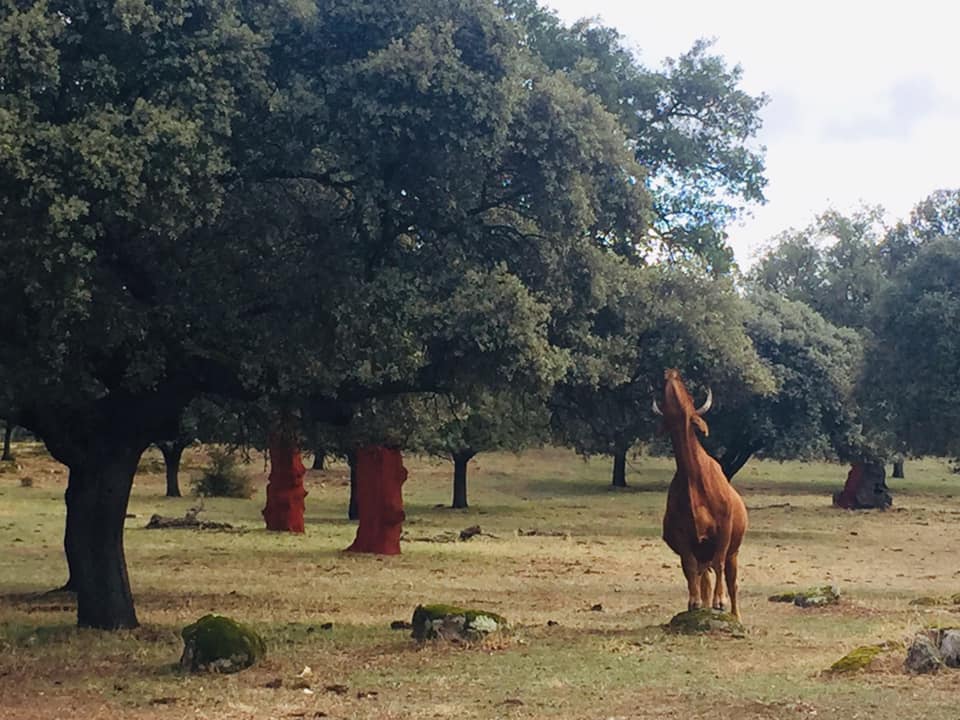
1. GO BACK TO BASICS
We’ll all have to put our regular lives on hold for a while even if we don’t get sick. The daily grind of work is now on hiatus for many, as are trips to the pub, meeting friends for coffee, going shopping and playing sports. So many things that we took for granted have disappeared virtually overnight, and we’ll all have to change our way of living, thinking and being in ways we would never have even considered just a few short weeks ago. We may find ourselves housebound or at a loose end. How are we ever going to manage?
Those who chose to go on a pilgrimage adopt those dramatic changes to their lifestyle deliberately. They consciously seek out a place of simplicity where they can go back to more basic modes of living, and feel more alive in the process. The pilgrim’s life on the road to Santiago follows a very simple trajectory: It consists of rudimentary tasks like walking, eating, sleeping, and doing the laundry. All that you own you must carry, and you’ll have to live cheek by jowl with strangers in very Spartan conditions. All hierarchies are eliminated, titles and uniforms are abandoned, and creature comforts are a rarity. The Camino is a physically and mentally demanding walk, yet the simplicity of the journey can prove to be incredibly rewarding. When your primary aim is survival you start to realise how little you need to be fulfilled.
During this pandemic most of us will continue to live in far more comfort than pilgrims do, and many of us will have the luxury to use the time and space we’ve been given constructively. It is very important to maintain a structure to our day, as that is the key ingredient to keeping sane and productive. We’ll suffer from restrictions of movement and lifestyle, and we’ll have to accept those limitations willingly and without any resistance. A lot of our day might appear to be monotonous, but that really depends on how we look at it. The present moment is all we have, whether we are on lockdown or on holiday. If we can learn to focus more on the world of now and not yesterday or tomorrow we’ll weather this storm with far greater ease. Take this time to pay more attention to your daily chores, be it making dinner, cutting the grass or doing the wash up. Now that we have been forced to slow down, focus on the simple things in life and use the time to reflect on how much we really need to be content. The answers you reach may surprise you.
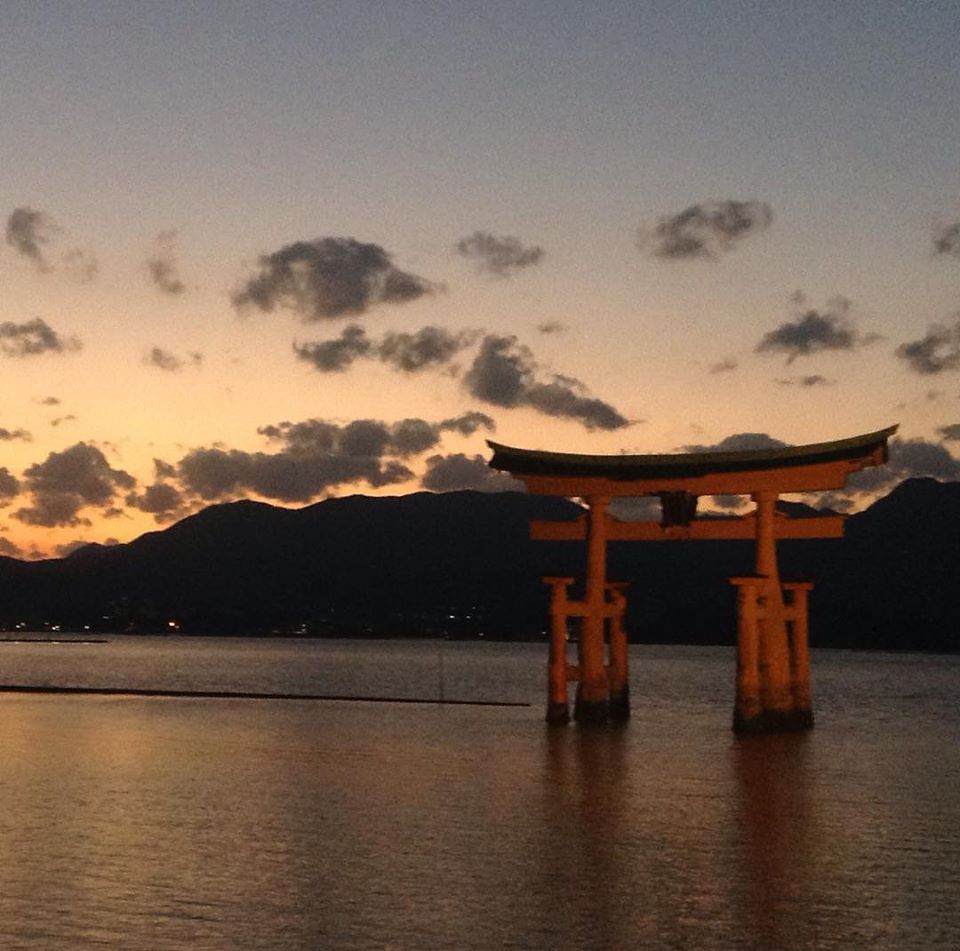
2. LISTEN TO THE SILENCE
For those of us who live in cities it’s rare to experience moments of pure silence. The hustle and bustle of urban living is the background soundtrack of our lives, yet in recent days this has all but disappeared. The commotion of traffic has gone, the roar of planes has been eliminated, the din of industry and construction has been silenced, the sounds of retail have faded. Many of will still walk about hooked up to an endless supply of audio entertainment piped into our phones, but we should take advantage of the unique opportunity to value the new stillness in the world all around us.
Silence and solitude are key ingredients in any pilgrimage. The space provided by pilgrimage allows the participant to listen to the voice of their subconscious. We all grapple with dilemmas of where we are going in life, what we want to do, how can we improve ourselves and how we can treat others better. In a hectic world we don’t often have the opportunity to listen carefully to those inner questions, but in quiet times we have more of a chance to reflect. Churches provide that space for experiencing silence, yet while many eschew traditional religion they embrace more popular forms of spirituality like yoga and meditation which also offer the same channels for tapping into our subconscious voices. Now that our whole world has become a meditative space it could be a good time to consider some of the bigger questions that affect all our lives. Perhaps when we come through these troubled times we may have a greater sense of what is important in our lives and have more appreciation for those around us. We may all get some inspiration to help make the world that’s coming a little bit better than the one we’ve left behind.
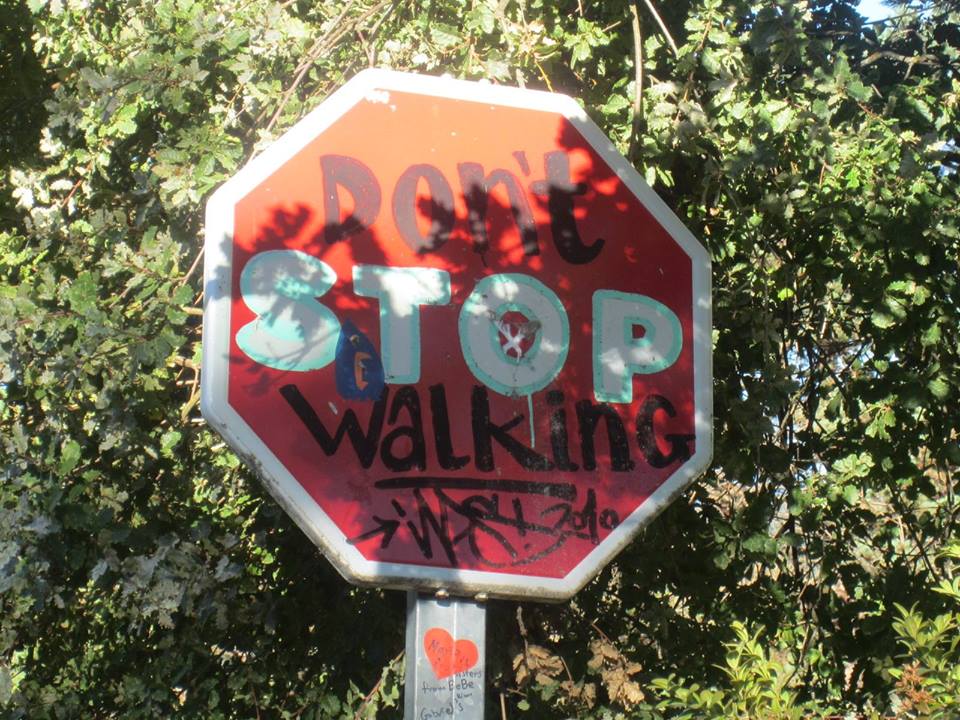
3. DEVELOP YOUR RESILIENCE
The rat race is over for many of us for now. We don’t have to be at work at a certain time, or chauffeuring children to extra curricular events at others. Now that our daily routines have been disrupted we’ll have a lot more time on our hands, and there lurks a danger that many of us could slide into a funk or a depression. This is where the need for resilience comes into play. A pilgrim on the Camino has to complete a long journey and must do so on foot. Each day they spend four to five hours or more walking a stretch of road which could be completed by car in 20 or 30 minutes. They must do this in all weathers, while carrying all their belongings on their back. Pilgrims must train their bodies, conserve their energy, pace themselves, eat the right food and get enough sleep to complete the physical journey. At times it can be demanding, challenging, frustrating, boring and monotonous, but no one ever thinks of quitting. Instead, when these feelings occur the pilgrim must listen to them, acknowledge them and keep on going.
In the weeks ahead we will all experience a roller coaster of emotions as the crisis continues. There are many factors that will lie outside our control, and some factors that we can control. Follow the experts advice regarding washing hands and social distancing, and leave all else in the lap of the Gods. Many of us will experience fear about the world that awaits us when the pandemic passes. Although it may sound flippant to say so, that is tomorrow’s problem. All any of us can do is take things one day at a time. For the pilgrim, the present step is the most important. For all of us facing the current crisis we can do no more that deal with what is immediately at hand either. Whatever challenge we will encounter, be it to our health, our sanity or our finances, we have to confront it head on and keep on going. We will have to dig deep to find reserves of patience, adaptability, tolerance, kindness, consideration, and lots and lots of humour. More easily said than done, but it needs to be done nonetheless. There is nobody on this planet who is not experiencing this pandemic, so as long as we keep putting one foot in front of the other we will all get to where we need to go.
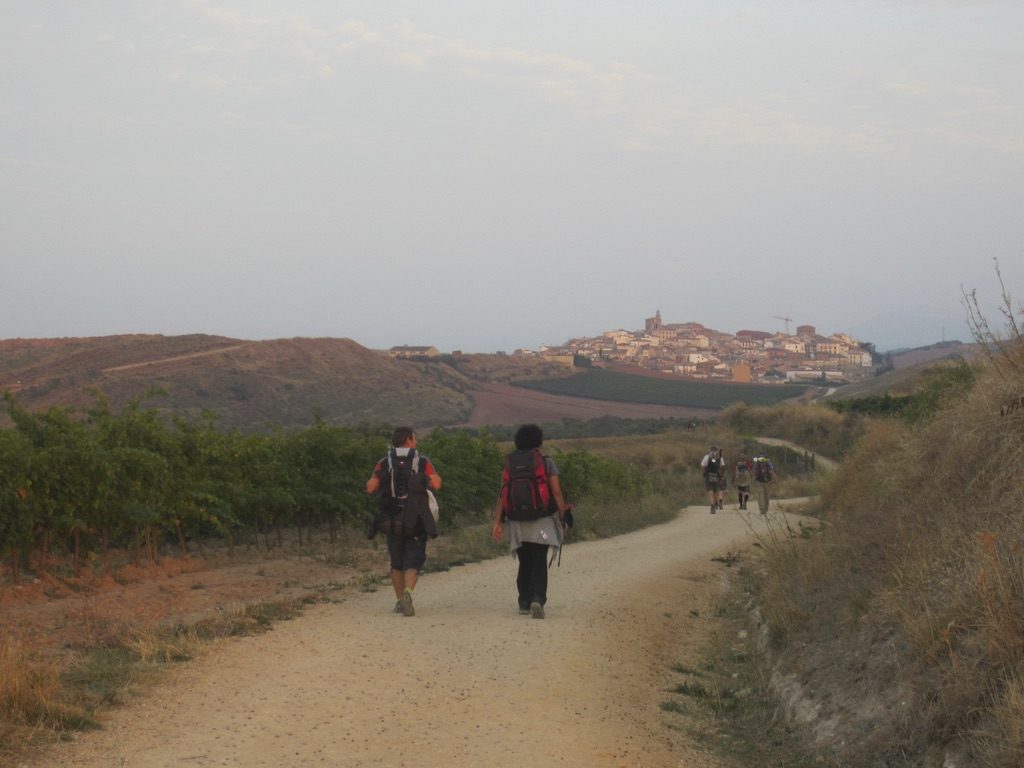
4. YOUR FELLOW TRAVELLERS ARE YOUR FRIENDS
Social distancing will probably rank as one of the words of 2020. In just a few short weeks this has become one of the most prominent pieces of advice being dispensed by the public health experts. However, physical distancing is a more accurate description. We all need to keep two metres space between us to prevent the virus from spreading further. That said, there is nothing stopping us from using the vast array of social media channels to keep in contact with our families and friends. Whether they are living next door or on the other side of the globe, we are all in the same boat at present. Solidarity will get us through this.
When you walk the Camino you meet people from all different corners of the world and they quickly become your friends and “family”. These are the people with whom you share the trials, tribulations and triumphs of your journey. When your feet are hurting like hell from a 40 KM hike, when your spirits are low, when you run out of food or water, your fellow travellers will always be there to bail you out. You will benefit from their wit, wisdom and kindness, as they will benefit from yours. Though we are going to be physically separated from each other for a while, we can still use the marvels of modern technology (and some that have been around for over a hundred years) to keep the channels of communications open with our next door neighbours and our overseas friends. Our friendships and support structures will help us overcome this pandemic.
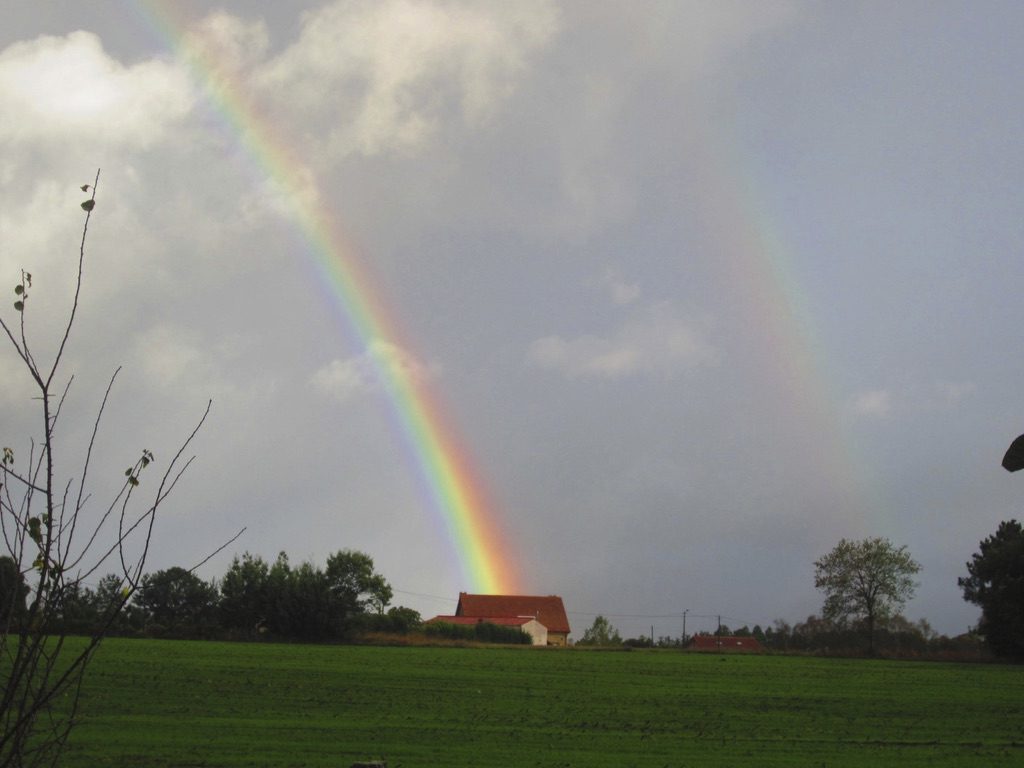
5. LOOK FOR THE RAINBOW
It might be hard to see any positives in the current situation. We’re all facing weeks if not months of social isolation, and these times will test us and change us psychologically. Even if we don’t contract the virus, or only suffer a mild dose, the quarantine could also affect our physical health due to far more restricted movements. However, we might also recognise that this free time gives us an opportunity for considerable personal growth and self improvement.
The Camino pushes our bodies to the extreme but it toughens them and inures them against illness and injury. By the end of 30 or 40 days, having walked 1,000 or more kilometres in all weathers, a pilgrim is carved out of wood. The time and space the Camino provides allows pilgrims to read, write, compose, draw, take pictures, and think long deep thoughts while appreciating – and sometimes not appreciating – the world around them. During this crisis, as long as we still have our health we should go outside for a walk and pay more attention to the world that we often hurry past (while maintaining social distancing from others). We can work in our gardens and observe the dance of nature that takes place all around us. We could spend more time cooking and baking. We can read all those books we have on our shelves, keep a journal of our daily experiences, do an online class, learn a language, or play an instrument. You can never have a rainbow without the rain, so while clouds of uncertainty and turmoil hang over our planet it can do no harm to look for the silver lining as well. Use this time well. It is a gift.
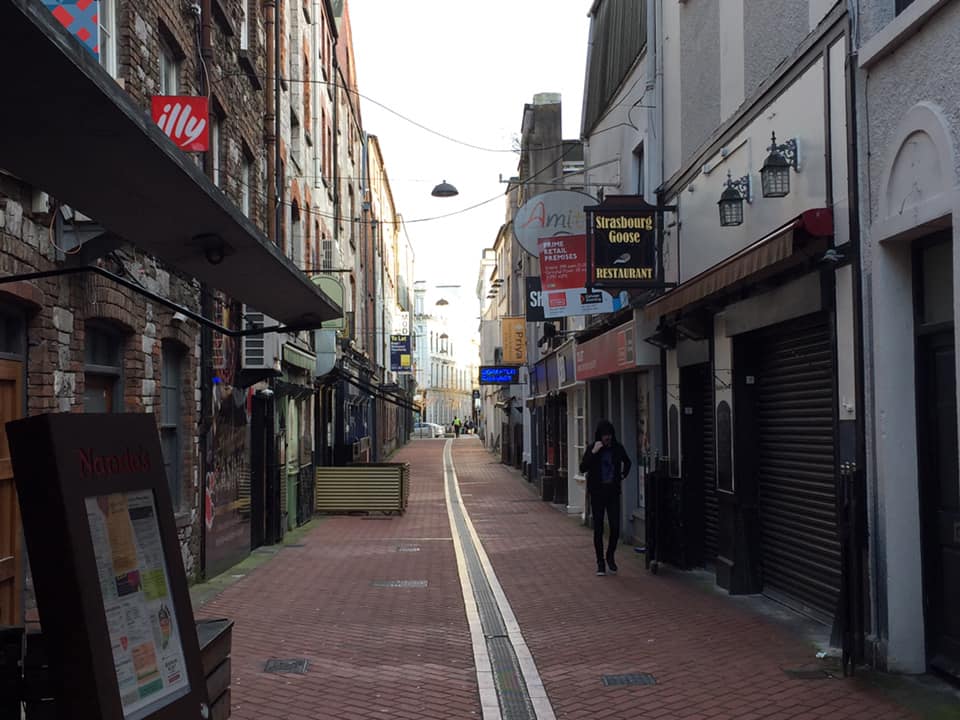
The world outside is now like the twilight zone. The streets are empty of people and cars, while shops and businesses are closed and shuttered. There’s an eerie silence all about as regular life has disappeared. For the pilgrim it’s common to spend long periods of time in isolation. But this can be a time when they purge themselves of a lot of negativity, revitalise their energy, enjoy the simple things of life, and accept the world around them with all of its faults and failings. Above all, pilgrims learn that it is the journey and not the destination that is paramount. We too can adopt a pilgrim’s mindset to navigate our way through the current confusion and chaos, and hopefully we’ll emerge on the other side with greater vitality, enthusiasm, and appreciation for the precious gift of life that we’ll hopefully all still have.
Wash your hands. Keep two metres apart. Stay safe.
Buen Camino.